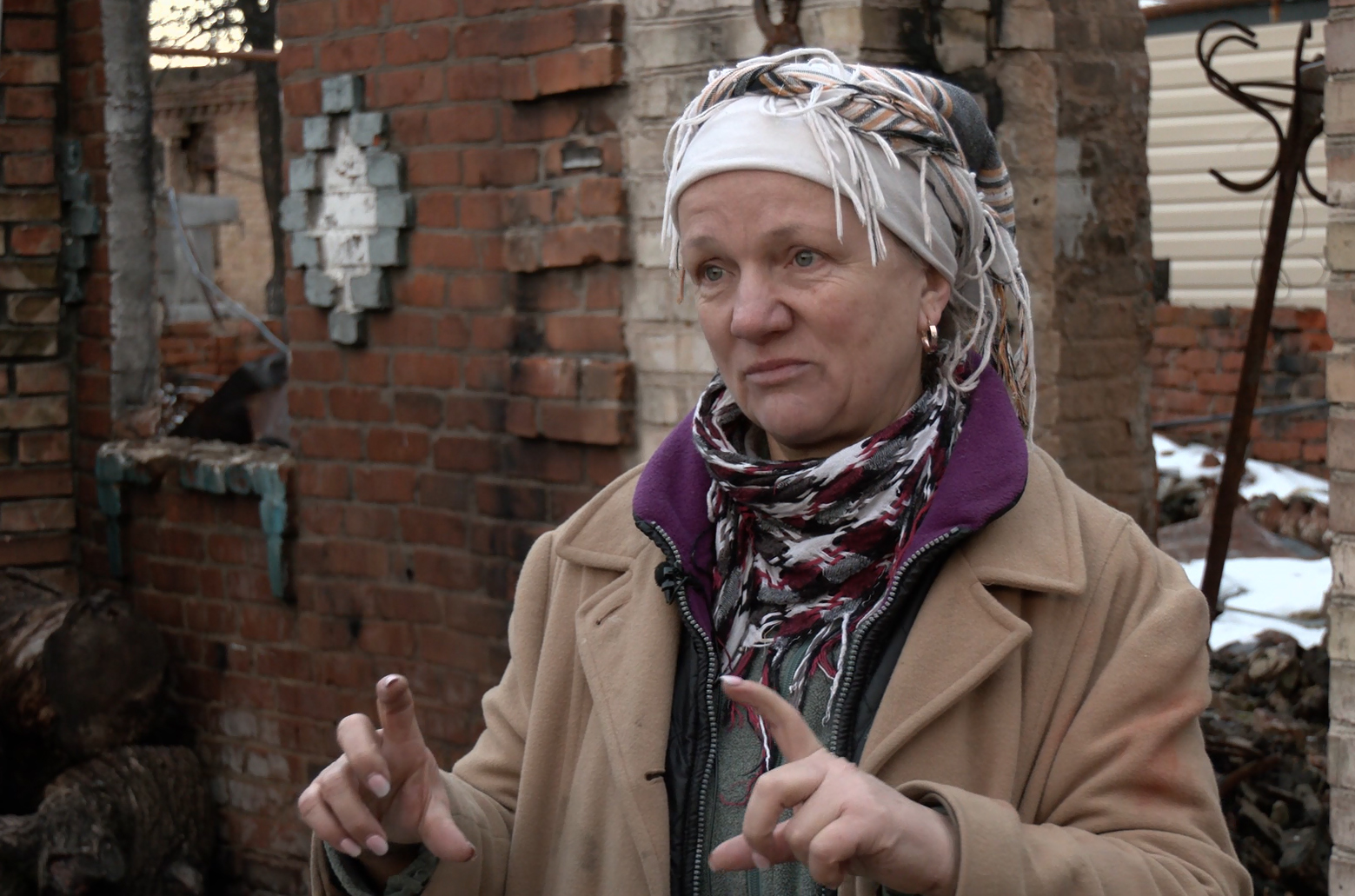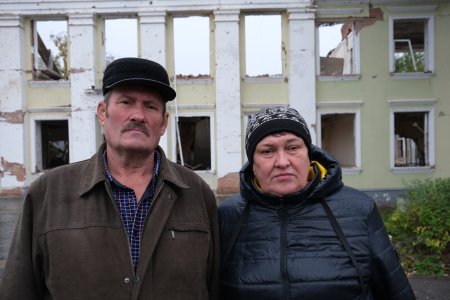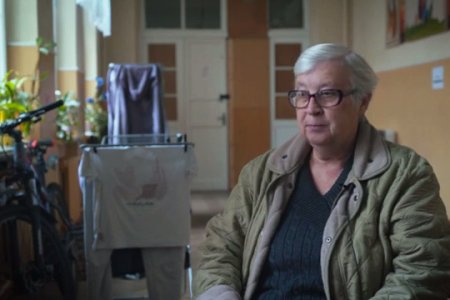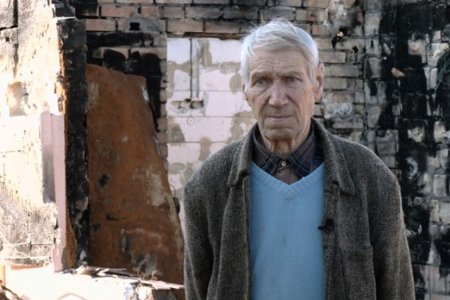I am Tetiana Shyrant, living in Moshchun, 98 Lisna Street. There were a lot of us. My mother is 85 years old. She now went to the Vinnytsia region. I have three children — a daughter and two sons. One son is in Kyiv. He currently serves in the Armed Forces. My daughter used to live here. She has five children.
What did we do? We worked. I work at the Institute of Endocrinology as a junior medical personnel. The daughter first studied to be a seamstress, but with five children, she did not work. Children studied.
— Did you expect that there would be a full-scale invasion?
— No, we thought they would not attack. It is the 21st century, so how can you bring tanks and shoot? I don't understand how this can be. We thought that there would be no war. We did not stock food and supplies. We have a concrete cellar, and we decided that we could hide there. The children were hiding there. We collected the documents in the shoulder bearer (shoulder backpack) but nothing more. No food, absolutely nothing. We stayed to the last here. I went to work on the 24th, and the family hid in the cellar.
— What happened on February 24th?
— I woke up at seven in the morning and went to the bus stop. It was the last minibus that went to Kyiv. I went on duty because people were waiting for me there. When we were driving, explosions were already heard. They shot at the military unit. So we already knew that the war had begun. I arrived at work, and my girls (colleagues) immediately went home. And that’s all; no one else came or left that day. We stayed until our patients left. We were with them and went to the bomb shelter a few times.
— You no longer returned?
— No, I evacuated to the Vinnytsia region, but the absolute horror happened here! My family hid in the cellar; the neighbors gathered to save the children and look after my mother. It was scary. Aircraft and helicopters flew, and the shells fell into the garden. They walked around looking for a connection because the electricity had already disappeared. They called me to let me know whether they were alive or not. The children left on 28 February, but one son remained for another three days.
We realized the Russians would cross through our bridge, and I worried about my son. It was the worst.
Strangers from the Vinnytsia region rescued my children. We have a friend who arrived in two cars and took my mother and children. What was here later, I don't know anymore. I just saw the video. A soldier we were acquainted with sent a photo to us, and we saw our street. We looked, and the house, it seems, was there, but then the “bang,” and it was no more.
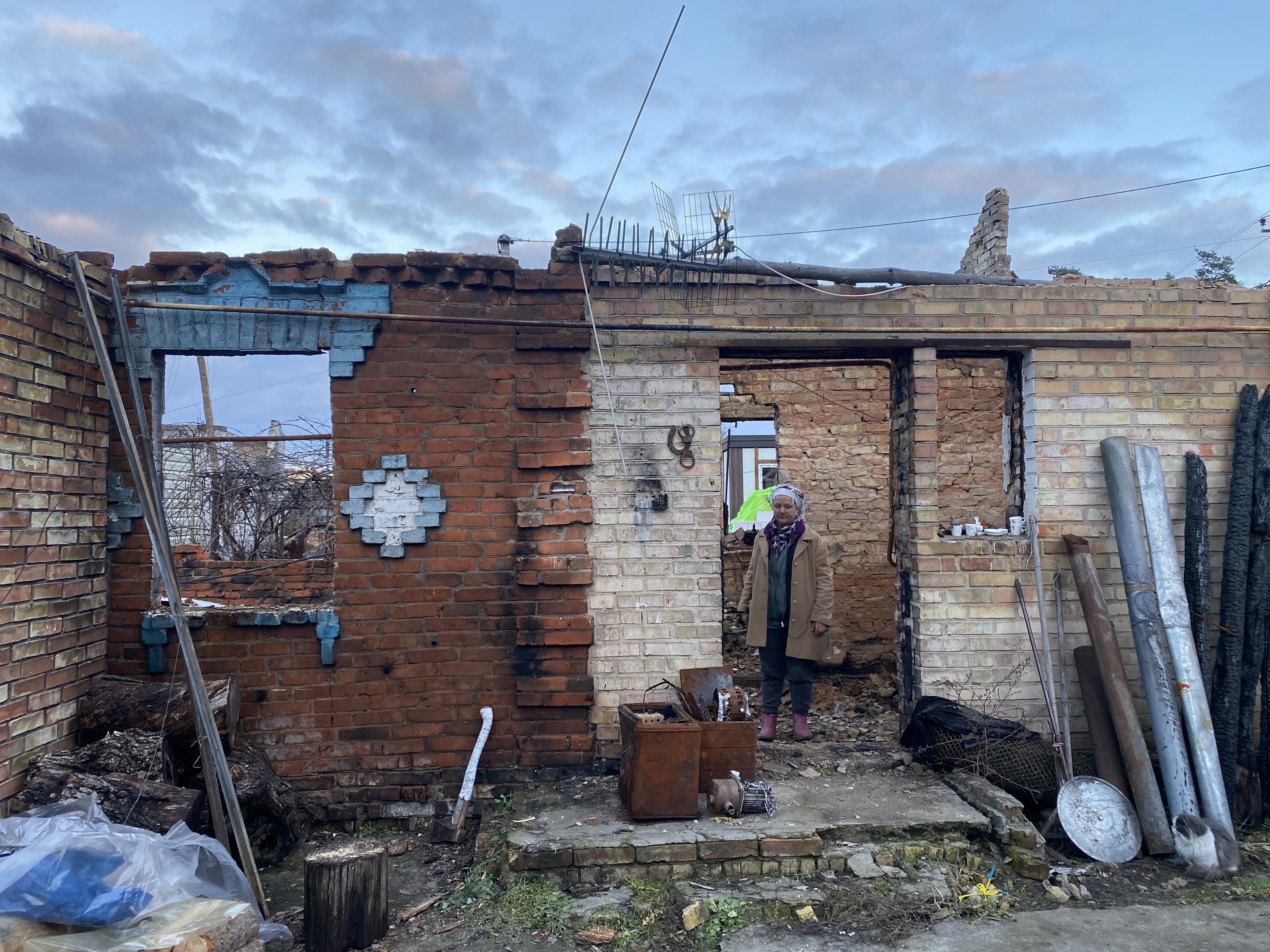
My children spent two months in the Vinnytsia region and then went to Germany. A month later, I returned to work. At first, we did not work, but I returned. First, on 17 April, I picked up my cat. And finally, at the end of April, we settled down with the neighbors. Their house survived.
— Are you living here now?
— Yes. We put a trailer and a wood stove. I make a fire while I am here. When the war began, everyone said: “Come here. We are on the outskirts, and it’s safe here. Who will come here?” However, in the end, our village was bombed severely.
— What about your house?
— Everything is terrible. All property burned down. As I understand it, it not only burned down. At first, the house was destroyed, but the summer kitchen and the roof over the garage were not damaged. My husband and son once visited. They both are in the territorial defense, so they were allowed to pass. They looked and left, but later we received a photo with no garage or summer kitchen.
Probably something was very burning. I don't know what exactly. Perhaps the phosphorus bombs were dropped.
The pots burned out, and the glass melted. It seems to me that this does not happen from a regular fire. If you throw a jar into the fire, will it melt? Probably something else burned. I don't even know. There is nothing left, not even the toilet.
— Tell us about your house.
— Mom and dad built our house in 1963. Then we added a bedroom, bath, kitchen, and another room. It was a two-family house. In one, my mother lived, and in the other — we. We visited each other. She was 85, and I looked after her. Everything in the house was like in other people's homes.
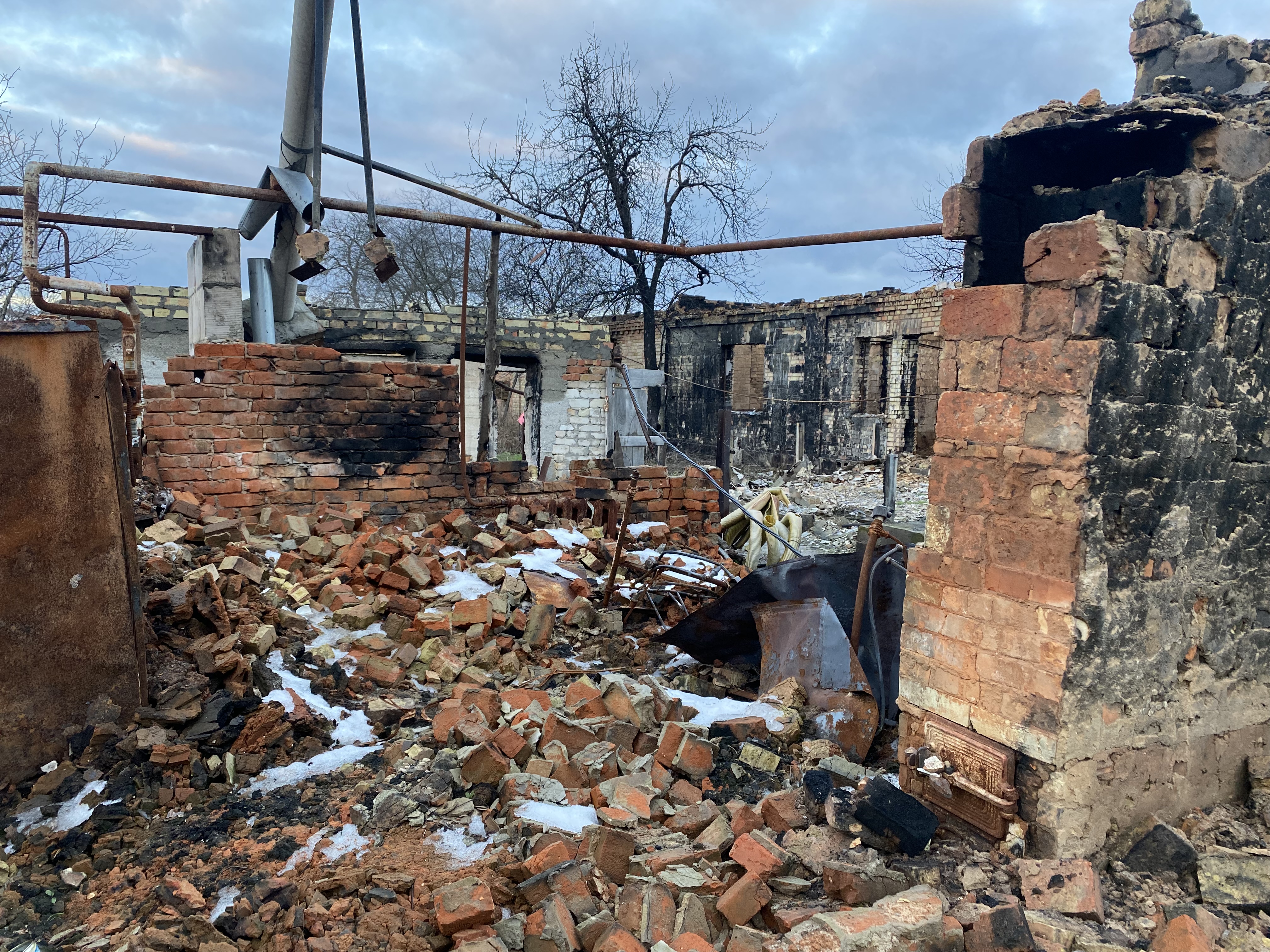
— How many homes were destroyed in Moschun?
— Oh, a lot. I think there is damage in every home. Probably there is not a single whole house left. Either it’s damaged by a shell or burned, or there is a hole in the wall. I spent the night in such a place. The house was more or less intact, but the windows were knocked out.
— Did the Russian military enter Moshchun?
— Yes. Here is a wooden house where they stayed. When we arrived on 17 April, their jackets, body armor covers, shoes, clothes, and food rations were still in that house. So here, one place over, they lived.
— Did the Russian military kill civilians?
— When we arrived, no one told us anything. But over time, we learned that they killed a person. I do not know what was there, but his hands were tied. But most people were killed by shelling, and there were many dead.
— What do you plan to do next?
— What are the plans? There are no plans. I don't even want to think about it. I do not know what to do. Parents built, we built, and now what? We can only demolish the house. The volunteers arrived and helped to remove some rubbish from the yard. They helped take the bricks out, and a mountain of them is on the street.
— Has your attitude towards Russians changed?
Of course, it has changed. We were like them. We speak on Surzhyk [a range of Mixed language Ukrainian and Russian languages used in certain regions of Ukraine], not pure Ukrainian. Previously, for example, I watched a movie and could not immediately understand what language they spoke: Russian or Ukrainian? I had to think. And now I hear when they speak Russian, which makes me angry. Furthermore, there is a collective responsibility. Of course, there is!
